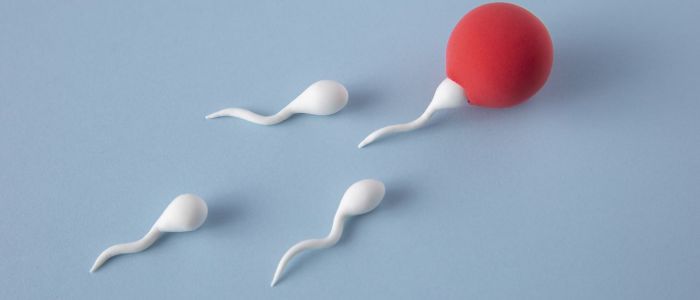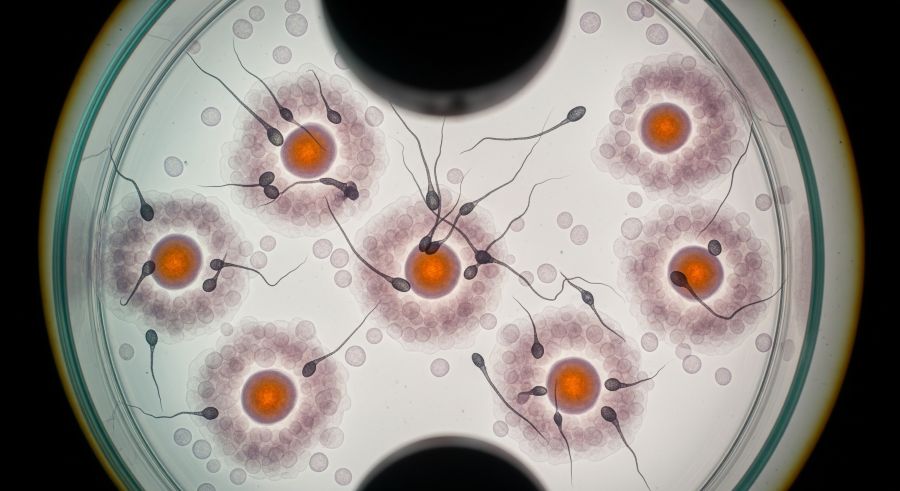Male fertility plays a crucial role in conception, yet it's often overlooked until couples face challenges getting pregnant. Understanding male fertility tests and treatments can help you take control of your reproductive health and make informed decisions about your fertility journey.
Understanding Male Fertility: The Foundation
When you're trying to conceive, it's important to know that male factors contribute to approximately 40-50% of all infertility cases. Your sperm health directly impacts your ability to father a child, and several factors can affect sperm production, quality, and function.
Male fertility depends on three key components: sperm production in the testicles, sperm maturation and storage, and sperm delivery through ejaculation. Any disruption in these processes can affect your fertility potential.
Essential Male Fertility Tests
If you've been trying to conceive for six months to a year without success, your doctor will likely recommend fertility testing. These tests help identify any issues affecting your reproductive health and guide treatment decisions.
Semen Analysis: The Primary Assessment
The semen analysis is the cornerstone of male fertility testing. This comprehensive test evaluates multiple aspects of your sperm health and provides crucial information about your fertility potential.
| Parameter | Normal Range | What It Measures |
|---|---|---|
| Sperm Concentration | 15 million/mL or higher | Number of sperm per milliliter |
| Total Sperm Count | 39 million or higher | Total sperm in entire sample |
| Motility | 40% or higher | Percentage of moving sperm |
| Progressive Motility | 32% or higher | Sperm moving forward effectively |
| Morphology | 4% or higher | Percentage of normally shaped sperm |
| Volume | 1.5 mL or higher | Amount of semen produced |
Your semen analysis results provide a snapshot of your sperm health, but remember that sperm production cycles take about 74 days. This means temporary factors like illness, stress, or lifestyle changes can affect your results.
Hormone Testing
Hormone imbalances can significantly impact sperm production. Your doctor may test several hormones to understand your reproductive health better.
| Hormone | Function | When Tested |
|---|---|---|
| Testosterone | Primary male hormone affecting sperm production | Low sperm count or sexual dysfunction |
| FSH (Follicle Stimulating Hormone) | Stimulates sperm production | Severe oligospermia or azoospermia |
| LH (Luteinizing Hormone) | Stimulates testosterone production | Low testosterone levels |
| Prolactin | Can suppress testosterone when elevated | Low libido or testosterone |
Advanced Diagnostic Tests
Depending on your initial test results, your fertility specialist may recommend additional testing to get a complete picture of your reproductive health.
| Test | Purpose | When Recommended |
|---|---|---|
| Sperm DNA Fragmentation | Measures genetic damage in sperm | Recurrent pregnancy loss or IVF failures |
| Antisperm Antibodies | Detects immune system attacking sperm | Poor sperm motility or clumping |
| Testicular Ultrasound | Examines testicle structure | Physical abnormalities or varicocele |
| Genetic Testing | Identifies chromosomal abnormalities | Severe oligospermia or azoospermia |
Common Male Fertility Issues
Understanding the most common male fertility problems can help you recognize symptoms and seek appropriate treatment. Many of these conditions are treatable with proper medical intervention.
Low Sperm Count (Oligospermia)
Low sperm count affects approximately 15% of men and can significantly impact your ability to conceive naturally. This condition can result from various factors including hormonal imbalances, genetic conditions, infections, or lifestyle factors.
According to Kumar et al. (2019), lifestyle modifications combined with medical treatment can improve sperm parameters in 60-70% of men with oligospermia, highlighting the importance of comprehensive treatment approaches.
Poor Sperm Motility (Asthenospermia)
Even with normal sperm counts, poor motility can prevent sperm from reaching and fertilizing the egg. This condition often occurs alongside other sperm abnormalities and may require specialized treatments like ICSI (Intracytoplasmic Sperm Injection).
Abnormal Sperm Shape (Teratospermia)
Sperm morphology affects the sperm's ability to penetrate and fertilize an egg. While strict morphology criteria may seem concerning, even men with low normal morphology percentages can achieve pregnancy with appropriate treatment.
Azoospermia (No Sperm)
Complete absence of sperm in the ejaculate affects about 1% of men and 10-15% of infertile men. This condition can be obstructive (blockage preventing sperm from reaching the ejaculate) or non-obstructive (problem with sperm production).
Male Fertility Treatment Options
The good news is that many male fertility issues are treatable. Your treatment plan will depend on your specific diagnosis, overall health, and your partner's fertility status.
Lifestyle Modifications
Often, the first line of treatment involves optimizing your lifestyle to improve sperm quality. These changes can have significant impacts on your fertility potential.
| Lifestyle Factor | Recommendation | Expected Improvement Timeline |
|---|---|---|
| Diet | Mediterranean diet rich in antioxidants | 3-4 months |
| Exercise | Moderate exercise 3-4 times per week | 2-3 months |
| Weight Management | Maintain healthy BMI (18.5-24.9) | 3-6 months |
| Smoking Cessation | Complete smoking cessation | 3-4 months |
| Alcohol Reduction | Limit to 1-2 drinks per day maximum | 2-3 months |
| Stress Management | Regular stress reduction techniques | 1-2 months |
Medical Treatments
Depending on your diagnosis, various medical treatments can help improve your fertility. These treatments target specific underlying causes of male infertility.
| Treatment | Indication | Success Rate |
|---|---|---|
| Hormone Therapy | Hormonal imbalances | 60-80% improvement in sperm parameters |
| Antibiotics | Bacterial infections | 70-90% infection clearance |
| Antioxidant Supplements | Oxidative stress | 30-50% improvement in sperm quality |
| Varicocele Repair | Varicocele with poor sperm quality | 60-70% improvement in parameters |
Assisted Reproductive Technologies (ART)
When natural conception isn't possible, assisted reproductive technologies offer excellent success rates for men with fertility issues.
Intrauterine Insemination (IUI)
For men with mild to moderate sperm abnormalities, IUI can be an effective first-line treatment. This procedure involves placing prepared sperm directly into your partner's uterus during ovulation.
| Sperm Parameter | IUI Success Rate per Cycle | Recommended Cycles |
|---|---|---|
| Mild oligospermia | 10-15% | 3-4 cycles |
| Moderate oligospermia | 8-12% | 3-4 cycles |
| Mild asthenospermia | 12-18% | 3-4 cycles |
In Vitro Fertilization (IVF)
IVF offers higher success rates for more severe male fertility issues. During the IVF process, eggs are fertilized with sperm in the laboratory before transferring embryos to the uterus.
Intracytoplasmic Sperm Injection (ICSI)
ICSI is particularly beneficial for men with severe sperm abnormalities. This technique involves injecting a single sperm directly into an egg, bypassing many natural barriers to fertilization.
Surgical Interventions
Some male fertility issues require surgical correction to restore normal function or retrieve sperm for use in assisted reproduction.
| Procedure | Indication | Success Rate |
|---|---|---|
| Varicocelectomy | Varicocele causing poor sperm quality | 60-80% improvement |
| Vasectomy Reversal | Previous vasectomy | 85-95% sperm return rate |
| TESE/TESA | Azoospermia | 50-70% sperm retrieval success |
| Obstruction Repair | Blocked reproductive tract | 70-90% patency restoration |
Sperm Retrieval Techniques
For men with azoospermia or those who cannot ejaculate, sperm retrieval procedures can obtain sperm directly from the reproductive tract for use in ICSI procedures.
| Technique | Method | Best For |
|---|---|---|
| TESA (Testicular Sperm Aspiration) | Needle aspiration from testicle | Obstructive azoospermia |
| TESE (Testicular Sperm Extraction) | Surgical tissue removal | Non-obstructive azoospermia |
| PESA (Percutaneous Epididymal Sperm Aspiration) | Needle aspiration from epididymis | Obstructive azoospermia |
| MESA (Microsurgical Epididymal Sperm Aspiration) | Microsurgical sperm retrieval | Complex obstructive cases |
Optimizing Treatment Success
Your fertility treatment success depends on various factors, including your specific diagnosis, age, overall health, and your partner's fertility status. Understanding these factors helps set realistic expectations and optimize your treatment approach.
Factors Affecting Treatment Success
| Factor | Impact on Success | Optimization Strategy |
|---|---|---|
| Age | Sperm quality declines gradually with age | Earlier treatment initiation |
| Overall Health | Chronic conditions affect fertility | Comprehensive health management |
| Partner's Age | Female age significantly impacts success | Consider treatment urgency |
| Treatment Compliance | Following protocols improves outcomes | Clear communication with medical team |
Research by Sharma et al. (2021) demonstrates that men who actively participate in lifestyle modifications and follow treatment protocols have 40-60% higher success rates compared to those who don't make recommended changes.
Nutritional Support for Male Fertility
Proper nutrition plays a vital role in sperm production and quality. Incorporating specific nutrients into your diet can support your fertility treatment and improve overall reproductive health.
| Nutrient | Daily Recommendation | Food Sources | Fertility Benefit |
|---|---|---|---|
| Zinc | 11-15 mg | Oysters, beef, pumpkin seeds | Sperm production and testosterone |
| Selenium | 55-75 mcg | Brazil nuts, fish, eggs | Sperm motility and morphology |
| Vitamin C | 90-200 mg | Citrus fruits, berries, peppers | Antioxidant protection |
| Vitamin E | 15-30 mg | Nuts, seeds, vegetable oils | Sperm membrane protection |
| Folate | 400-800 mcg | Leafy greens, legumes, fortified grains | DNA synthesis and repair |
| Coenzyme Q10 | 100-300 mg | Supplements (limited food sources) | Sperm energy production |
While fertility supplements can be beneficial, it's important to discuss any supplementation with your healthcare provider to ensure they're appropriate for your specific situation.
Emotional Support and Coping Strategies
Dealing with male fertility issues can be emotionally challenging. Many men experience feelings of inadequacy, stress, or depression when facing fertility problems. Remember that these feelings are normal and seeking support is a sign of strength, not weakness.
Consider these coping strategies during your fertility journey:
| Strategy | Benefit | How to Implement |
|---|---|---|
| Open Communication | Reduces isolation and stress | Talk openly with your partner and healthcare team |
| Support Groups | Connect with others facing similar challenges | Join online or in-person fertility support groups |
| Professional Counseling | Develop healthy coping mechanisms | Work with fertility counselors or therapists |
| Stress Management | Improves overall well-being and fertility | Practice meditation, yoga, or other relaxation techniques |
Research shows that men who receive emotional support during fertility treatment have better treatment adherence and improved outcomes compared to those who don't seek support.
When to Seek Fertility Treatment
Knowing when to seek help is crucial for optimizing your chances of conception. Don't wait too long to consult a fertility specialist, as early intervention often leads to better outcomes.
| Situation | Recommended Action | Timeline |
|---|---|---|
| Trying to conceive under 35 (partner) | Seek evaluation after 12 months | 1 year of trying |
| Trying to conceive over 35 (partner) | Seek evaluation after 6 months | 6 months of trying |
| Known fertility risk factors | Seek evaluation immediately | Before trying to conceive |
| Previous fertility problems | Consult specialist early | When planning pregnancy |
Risk factors that warrant early evaluation include previous testicular injury, cancer treatment, genetic conditions, or family history of fertility problems.
Frequently Asked Questions
How long does it take to see improvements in sperm quality?
Since sperm production takes approximately 74 days, you typically need to wait 2-3 months to see the effects of lifestyle changes or treatments on your sperm quality. This is why patience and consistency are important during treatment.
Can stress really affect male fertility?
Yes, chronic stress can negatively impact sperm production and quality by affecting hormone levels. Managing stress through relaxation techniques, exercise, and counseling can improve your fertility potential.
Are fertility supplements worth taking?
Certain supplements like zinc, selenium, and antioxidants can benefit sperm health, especially if you have nutritional deficiencies. However, it's important to consult with your doctor before starting any supplement regimen to ensure they're appropriate for your situation.
What's the difference between IUI and IVF for male fertility issues?
IUI is less invasive and works well for mild sperm abnormalities, while IVF offers higher success rates for more severe issues. Your doctor will recommend the most appropriate treatment based on your specific diagnosis and circumstances.
How successful are fertility treatments for men?
Success rates vary depending on the specific issue and treatment used. Many male fertility problems are highly treatable, with success rates ranging from 60-80% for lifestyle and medical interventions, and even higher for assisted reproductive technologies.
The Future of Male Fertility Treatment
Advances in reproductive medicine continue to improve treatment options for male fertility issues. New technologies and treatment approaches offer hope for men with even the most challenging fertility problems.
Emerging treatments include stem cell therapy for sperm production, advanced sperm selection techniques, and personalized medicine approaches based on genetic testing. These innovations may provide new options for men who haven't responded to traditional treatments.
At Avida Fertility, we stay at the forefront of these developments, incorporating the latest evidence-based treatments to give you the best possible chance of achieving your family-building goals.
Taking the Next Step
Understanding your fertility health is the first step toward building the family you've always wanted. Male fertility testing and treatment have advanced significantly, offering hope and solutions for most fertility challenges.
Remember that fertility issues are medical conditions, not personal failures. With proper diagnosis and treatment, most men with fertility problems can achieve their goal of fatherhood. The key is seeking help early and working with experienced fertility specialists who understand the complexities of male reproductive health.
Your fertility journey may feel overwhelming at times, but you don't have to navigate it alone. Professional support, combined with appropriate medical treatment, can help you overcome fertility challenges and move forward with confidence.
Considering fertility evaluation or treatment? Avida Fertility is here to support and guide you on your fertility journey. Our experienced team uses the latest diagnostic tools and treatment approaches to help you achieve your family-building goals. Reach out today for a personalized consultation and take the first step towards building your family with confidence.






.png)






.svg)
.svg)
